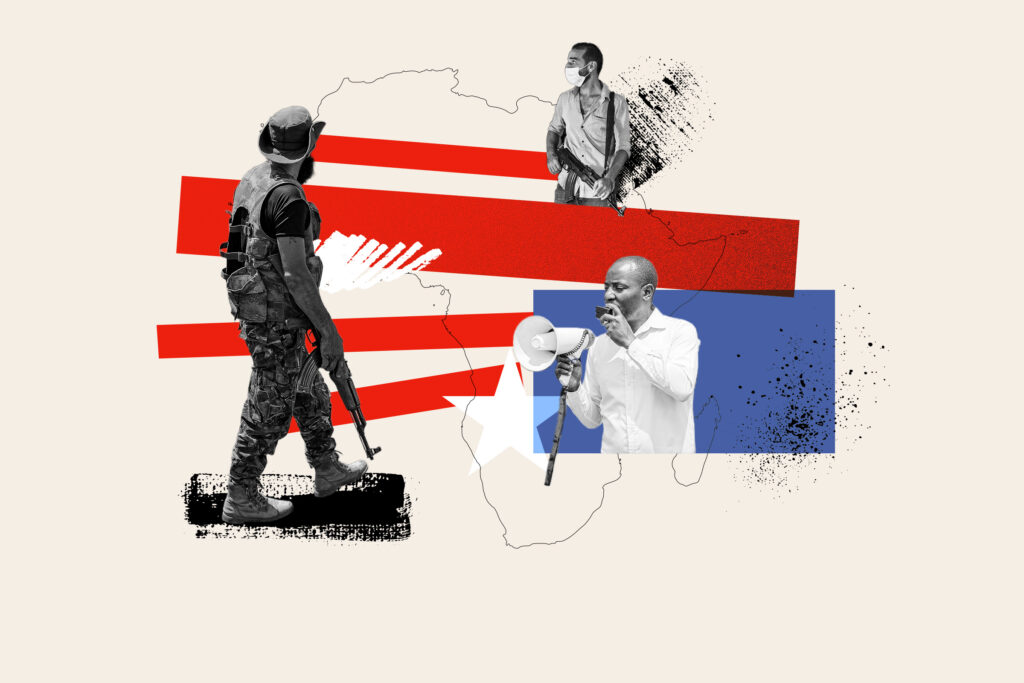
URGENT UPDATE: ISIS-linked militant groups are escalating violence across Africa, raising alarms about potential threats to global security, including the United States. Over the past week, ISIS-affiliated forces executed a deadly attack on a church in the eastern Democratic Republic of Congo and claimed responsibility for the killing of soldiers in Burkina Faso. These incidents mark a disturbing trend of increasing brutality from ISIS as they expand their influence across the continent.
On Sunday, February 1, 2025, militants targeted a church in the DRC, resulting in nearly 40 casualties. Just days earlier, on Thursday, a separate attack in Burkina Faso left multiple soldiers dead. This surge in violence is part of ISIS’s strategy to exploit existing conflicts and capitalize on profound insecurity in the region, complicating efforts to combat the group effectively.
J. Peter Pham, former U.S. Special Envoy for the Great Lakes and Sahel Regions, highlighted that Africa has become a frontline in the battle against Islamist terrorism. “For three years now, a majority of global terrorism-related deaths have occurred in Africa, with roughly half of all fatalities in the Sahel region,” Pham stated. Analysts warn that the current situation, where local governments struggle to maintain control, could morph into a larger global threat if not addressed.
ISIS is aggressively expanding its foothold from the Sahel to Somalia, eastern Congo, and Mozambique, with various affiliate groups like Islamic State West Africa Province (ISWAP) and Islamic State Central Africa Province (ISCAP) demonstrating increasing lethality. The potential for these factions to unify poses a significant risk, as they could operate effectively across borders.
Security experts express concern that the interconnectedness of ISIS affiliates may deepen. “The Sahel is a combustible environment where local ISIS affiliates could expand their operations into Mali, Burkina Faso, and Niger,” warned experts, emphasizing that this could enable ISIS to control critical territories and undermine governmental authority.
In the DRC, the Allied Democratic Forces (ADF), which pledged allegiance to ISIS in 2018, exemplify this trend. Their recent attacks on churches underscore ISIS’s strategy of inflaming sectarian tensions, further complicating the region’s stability. “ISIS-affiliated groups have a history of targeting Christians, which fits within their apocalyptic narrative,” noted Caleb Weiss, a senior analyst.
The urgency of the situation has not gone unnoticed by U.S. officials. General Michael Langley, commander of U.S. African Command (AFRICOM), stated, “Left unchecked, these groups will pose a direct threat to the homeland.” Yet, U.S. policy towards this growing crisis remains limited, often overshadowed by geopolitical concerns.
As ISIS continues to exploit conflicts across Africa, the implications for global security cannot be understated. With U.S. interests at stake, particularly in accessing critical minerals, the need for effective collaboration among African nations has never been more crucial. Analysts suggest that sustained regional pressure is essential to counter the rising tide of militant activity.
In conclusion, the escalating violence from ISIS-affiliated groups in Africa represents a significant challenge that could impact global security. As these conflicts evolve, the international community must remain vigilant and proactive in addressing the underlying issues fueling this resurgence of extremism. The world is watching closely as the situation develops.
Stay tuned for further updates as this situation unfolds.




